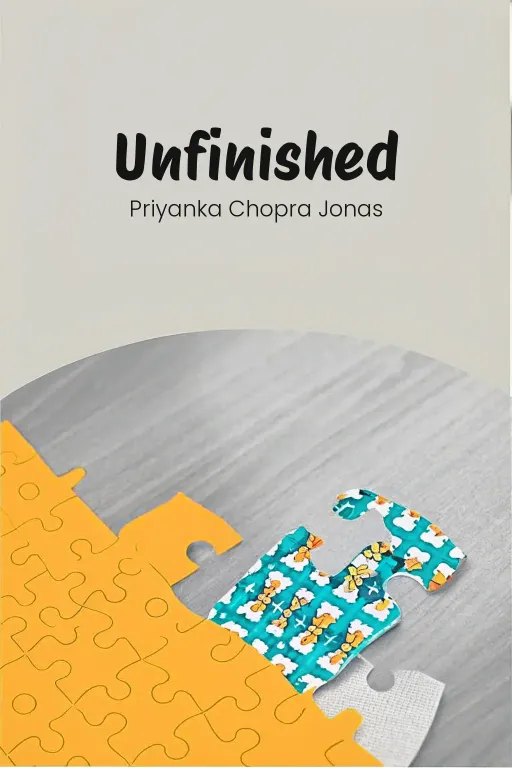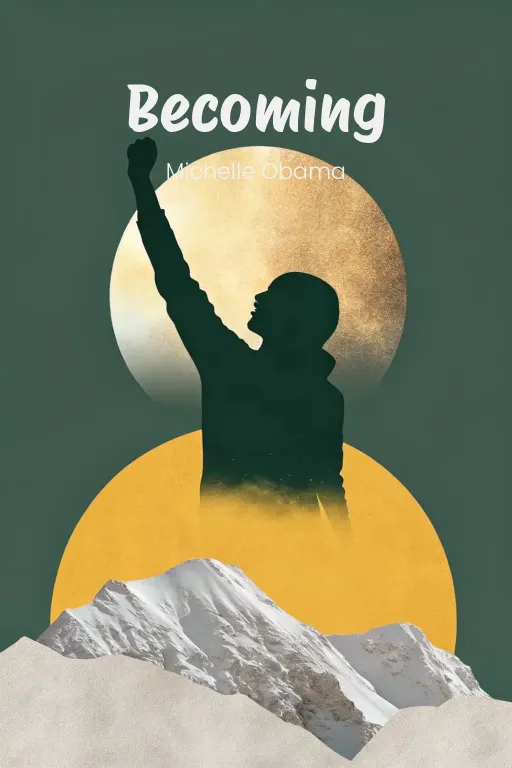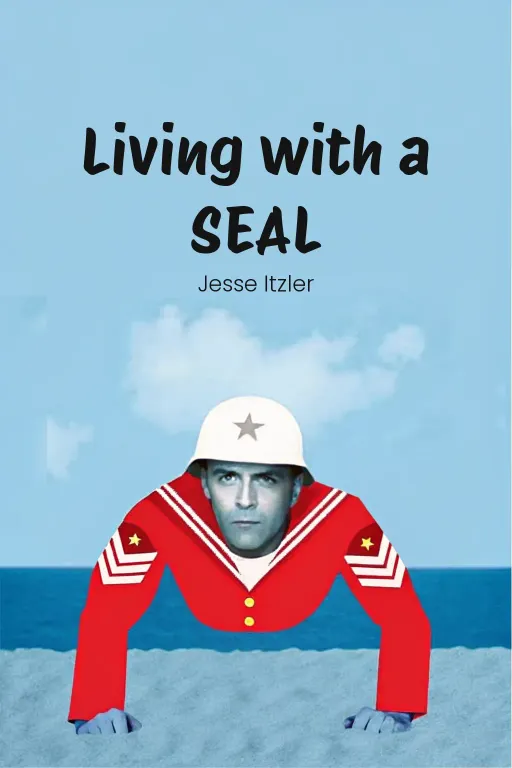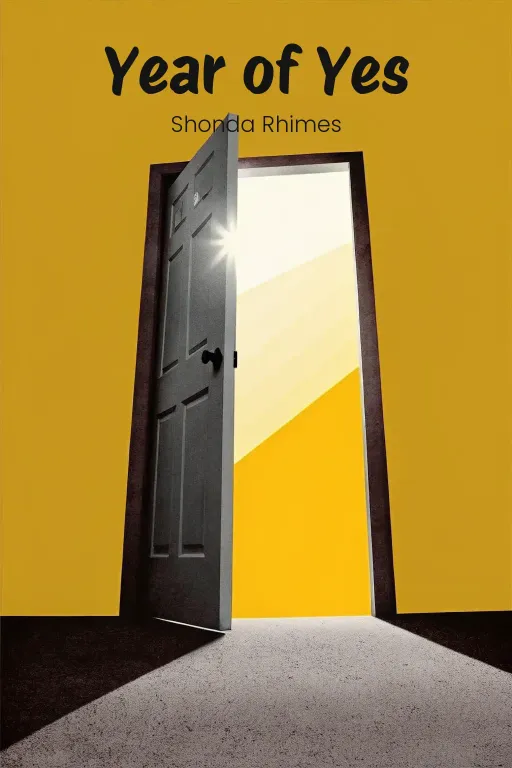
Life's Remix: Ditch Fear, Design YOU
Podcast by Beta You with Alex and Michelle
How to Dance it Out, Stand in the Sun, and Be Your Own Person
Life's Remix: Ditch Fear, Design YOU
Part 1
Alex: Hey everyone, welcome back! Today we're diving headfirst into stories of transformation, fear, and embracing life. Michelle, let me kick things off with a question for you, and for all our listeners: when was the last time you said "yes" to something that genuinely scared you? Michelle: Alex, straight into the deep end, huh? No small talk today! Well, "terrified" is a strong word, but probably that karaoke night you talked me into. But, uh, I'm guessing our topic today has a bit more substance than off-key singing under pressure? Alex: Absolutely. We're talking about Shonda Rhimes, the creative force behind Grey's Anatomy and Scandal, and her memoir Year of Yes. It's a look at this absolutely transformative year where she decides to face her biggest fears, both professionally and personally. Michelle: So, the queen of TV drama ends up starring in her own real-life script? I'm already hooked. But what sets this whole year in motion? Alex: It all starts at Thanksgiving. Her sister delivers this zinger: "You never say yes to anything." That one sentence “really” makes Shonda rethink everything, resulting in a year of taking on challenges, rediscovering joy, and figuring out what being authentic really means to her. Michelle: Okay, that sounds potentially inspiring, but also maybe a little…self-helpy? So where are we focusing our attention today? I'll need something more than just motivational quotes about "living your best life" to keep me fully engaged. Alex: Oh, trust me, we're going way beyond clichés! We're breaking it down into three transformative pieces: First, we'll explore saying "yes" as a “really” powerful way to kickstart growth. Second, how embracing vulnerability became her unexpected superpower. And third, how she boldly redefined what success and relationships meant to her. Michelle: Alright, three big ideas: growth, vulnerability, and a life overhaul. Sounds intense, like a makeover show... for your soul, as you mentioned earlier. Alex: Exactly! Shonda's story is packed with real insights about fear, joy, and daring to live authentically. It's not just about mindlessly saying "yes" to everything, Michelle. It's about saying "yes" to the things that truly matter. Ready to get into it? Michelle: Alright, let's see if I'm "yes" material by the time we wrap this up. Fire away!
The Power of Saying Yes
Part 2
Alex: Okay, so let’s jump back to the beginning, to that pivotal moment. It's Thanksgiving morning, kitchen's a madhouse, and Shonda’s sister, Delorse, just drops this bomb: "You never say yes to anything." Michelle: It's kinda crazy how a throwaway line like that can trigger a massive life change, huh? But didn’t Shonda initially dismiss it? I mean, who has an existential crisis while basting a turkey? Alex: You'd think she would, right? But it really stuck with her. Delorse wasn't just being critical; she was spot-on. Shonda had built this incredible career, but personally, she was hiding. That comment forced her to really look at how closed off she'd become. Michelle: So it wasn’t just work consuming her; it was this protective wall she’d built. Avoidance as a lifestyle, basically. Alex: Exactly! And the crazy part is how unconscious it was. She wasn't deliberately thinking, “I’m avoiding life." It was just her way of dealing with fear, pushing it down, saying no, playing it safe. That comment was like holding up a mirror. Michelle: Pretty harsh for Thanksgiving, though. “Pass the potatoes, and oh yeah, you need an intervention.” Alex: But sometimes, that’s what it takes to wake us up. Think about how many of us run on autopilot when it comes to avoiding stuff—risks, rejection, putting ourselves out there. Michelle: True. I'm still picturing Delorse thinking, "Everyone's enjoying mashed potatoes, and Shonda needs a full life overhaul." Alex: Well, whatever it was, it worked. Soon after, the universe served up her first major test: an invitation to give the commencement speech at Dartmouth. Michelle: Let me guess—her immediate reaction was a resounding “no way.” Alex: Oh, 100%. Shonda had spent her entire life terrified of public speaking. Just the thought of standing in front of thousands of people, totally exposed, filled her with dread. Saying yes felt like volunteering to walk through fire. Michelle: And yet, she did it anyway. I don’t know, most people I know would’ve politely declined and gone back to Netflix. Alex: That's the key. For Shonda, it wasn’t just about the speech. It was about realizing that this wall she’d built to “protect” herself had become her prison. Accepting Dartmouth wasn't easy, but it was a conscious decision to break out, even though she was terrified. Michelle: Okay, I’m intrigued. She's not suddenly fearless. The fear doesn’t just magically disappear just because she says yes. Alex: Exactly! That’s what makes this so relatable. We often think we need to conquer our fear first, then act. Shonda flips that—she acts despite her fear. She agreed to the speech, even while her brain was screaming, “Don’t do it!” Michelle: So it's not about being fearless; it's about… showing up scared, sweaty, and maybe even stammering? Alex: Precisely. And here’s the beautiful part: when she finally gave that speech, she didn’t try to be perfect or polished. She was real, honest–she even admitted, “I have no idea what I’m doing most of the time!” Michelle: And they loved it, I bet. Alex: They absolutely loved it. Turns out, being vulnerable was her superpower. All those perfect scripts she'd written didn’t compare to her real, authentic self on that stage. Graduates were thanking her for her honesty. Michelle: Instead of impressing people, she connected with them. Makes you think about all the times we hide behind this idea of perfection. What do we miss out on by not letting people see the real us? Alex: That’s the core lesson, isn’t it? In her world—where “perfect” seems like the standard—Shonda discovered that what really matters is saying, “Here I am, flaws and all.” Michelle: Vulnerability as a weapon. I didn’t see that coming! So, what’s next? Did one speech transform her into a "yes" machine? Alex: Not quite that simple. The speech was just the first step. Saying yes wasn't a quick fix; it was a complete reprogramming of how she lived. Each "yes" chipped away at years of avoidance, changing how she saw fear, failure, and even success. Michelle: I see where this is going. It's not about blindly saying yes to everything; it’s about being intentional, right? She’s practicing courage, not just creating chaos. Alex: Exactly! It’s about intentionally stepping outside your comfort zone, one "yes" at a time. Over time, she’s not just saying yes to invitations – she’s saying yes to herself. Michelle: Alright, time for a deep question – does “yes” teach her how to say “no”? Does she learn to set boundaries? Alex: Absolutely, and we'll definitely get to that. But right now, she's focused on changing her world by actively participating in it. Each "yes", whether it’s a speech, an invitation or a new challenge, becomes a bridge to a richer, more authentic life.
Embracing Vulnerability and Authenticity
Part 3
Alex: And speaking of authentic living, let's explore another powerful example of Shonda embracing vulnerability. This time, it wasn't on a stage, but right in her living room. It's a moment about redefining connection, especially as a mother. Michelle: Ah, you're talking about the "Wanna play?" incident, right? I have to admit, this one confuses me a bit. How does a single question from her daughter become this profound life lesson? It sounds… sweet, sure, but deep? Alex: Trust me, Michelle, it's more than sweet. The context is this: Shonda's all dressed up, ready for a big event, when her daughter Emerson asks, "Wanna play?" And in that instant, she realizes her default answer would have been no. Not because she didn't love her kids, but because work and appearances had always come first. Michelle: Right, the classic "I've got more important things to do" reaction. But honestly, most parents are juggling so much. Who has the time to just drop everything and build Lego castles? Alex: Exactly, that's the crux of it. Yes, she could have easily justified saying no. She had deadlines, commitments, people expecting her. But in that moment, she understood what she would be missing... and how often she had been missing it. It wasn't about the Lego castle, it was about the connection. Michelle: So, her epiphany wasn’t just, "Let me entertain my kid." It was more like, "Wait, what am I giving up by sticking to this overly structured life?" Alex: Precisely! That's what resonated so deeply with her. Shonda doesn't just play once; she kicks off her heels, throws aside that fancy dress, and dives right into the moment, without holding back. And what she discovers is not only her own joy, but also her daughter's sense of connection—that pure, unguarded joy that cuts through all that "important" adult stuff. Michelle: Okay, I get the significance now. It's not just about saying yes to playtime, it's about reassessing her priorities. It sounds like while her professional life was all about control and strategy, this moment was about surrendering to something more... human? Alex: Exactly. Shonda reflects later on how those small "yeses" to joy became huge. They weren't just about bonding with her kids, although of course, that was part of it. They were about reclaiming parts of herself. Play isn't just for children, it's for anyone brave enough to let their guard down. Michelle: Alright, but isn't there a risk of being unrealistic? I mean, not every parent can drop everything to play with their kid just because. Alex: Absolutely valid point, and Shonda acknowledges that. She isn't saying to agree to every demand or abandon responsibilities. What she emphasizes is intentional presence – showing up fully, even if just for ten minutes. It's not about duration, but the quality of time. Michelle: So, it's shifting from being "physically present, mentally absent" to simply being present. Alex: Exactly. The vulnerability comes in when she lets go of her perfectionism, that image she's trying to maintain, and chooses instead to let her daughter's joy – and her own – take precedence. It's messy, unpolished, and spontaneous. But those moments create the deepest impact, both for her kids and herself. Michelle: Ah, she's shedding that armor again. First on stage, now on the living room floor. Okay, Alex, I'm impressed by how those small "yeses" seem to have such a big impact on her. Alex: Absolutely! Those smaller "yeses" laid the foundation for a change in how she viewed connection – not just with her kids, but with everyone in her life. And this leads us to another layer of her vulnerability: friendships. Michelle: Oh, friendships. Let me guess, this is where it gets complicated, right? Vulnerability is one thing, but add in human relationships, and it becomes fascinating. Alex: Definitely. A crucial moment in her "Year of Yes" involves her relationship with a friend named Pam. Pam seemed to be a loyal, longtime confidante, someone Shonda always relied on. But, as Shonda embraced her "Year of Yes," their relationship began to change. Michelle: How so? Was Pam just not on board with Shonda's "say yes and be authentic" transformation? Alex: Something like that. As Shonda grew and changed, Pam's resentment became clearer. There was this underlying tension, almost as if Pam resented the new version of her. Michelle: That must have hurt. You’d think your closest friends would support your growth, not criticize you for stepping outside your comfort zone. Alex: Exactly. That made it so painful for Shonda – the realization that not all relationships can handle change. She realized she was clinging to the idea of her friendship with Pam more than its reality. She had to accept the difficult truth: some friendships aren't meant to grow together. Michelle: Wow, that's tough. But necessary, right? It's not vulnerability if it's just about nice speeches or playtime – it's also about facing emotional challenges you’d rather ignore. Alex: Exactly right. Vulnerability isn't just about the joyful moments; it's about facing the tough truths, too. Shonda had to admit that, despite their history, her friendship with Pam no longer fit who she was becoming. And that realization allowed her to concentrate on building relationships that truly supported her growth. Michelle: Sounds like a subtle kind of courage, doesn't it? Letting go of comfort to make way for something better. Alex: Absolutely. It's all connected, Michelle – the speeches, the playtime, the friendships. Shonda's "Year of Yes" doesn't just teach her to show up for others; it teaches her to show up fully and authentically for herself.
Redefining Success and Relationships
Part 4
Alex: So, as Rhimes embraced being vulnerable, she also took a hard look at her relationships and what society expected of her. This led to her redefining what success and relationships “really” mean. Basically, she realized that saying yes isn’t just about the choices you make, it’s about rebuilding the foundation of your life. She shows us that being true to yourself doesn’t just change you, it actually reshapes the world around you. Michelle: Reshape the world, huh? That sounds pretty ambitious. Okay, I’m intrigued—how does saying yes connect to redefining success? Is she just swapping professional wins for personal ones, or is there more to it? Alex: Oh, there’s definitely more to it. She doesn’t just rethink her priorities, she “really” challenges the standard ideas about what success and relationships should be. Let’s take her friendship with Pam, for example. That story “really” shows how saying yes to yourself sometimes means saying no to unhealthy relationships. Michelle: Pam, eh? Let me guess, one of those friendships that seems perfect on the outside but is actually kind of broken underneath? Alex: Exactly! Shonda admired Pam for being warm and loyal, at least at first. But as Shonda started saying “yes” to growing and finding herself, the problems became obvious. Pam’s passive-aggressive behavior and the way she couldn’t be happy for Shonda’s changes “really” showed they weren’t a good fit anymore. Michelle: So, Shonda’s personal growth triggers Pam’s... what, jealousy? Resentment? What's going on? Alex: Maybe a bit of both. What matters is that Shonda realized she was holding onto an ideal version of Pam, one that wasn’t real anymore. The difference between who Shonda thought Pam was and who she actually was became too big to ignore as Shonda started prioritizing being true to herself. Michelle: Ouch, that’s a tough pill to swallow. Realizing that someone you care about can’t—or won’t—support the person you’re becoming? Sounds like a breakup, only worse. Alex: It is a lot like a breakup, actually. And it’s not just about Pam’s actions, it’s about Shonda’s growth. She talks about how her other friends had been pointing out Pam’s flaws for years, but she wasn’t ready to see it. It was only when she started being true to herself that she could see the relationship for what it “really” was: stuck and unsupportive. Michelle: Right, so it’s less “Pam turns evil” and more “Shonda gains clarity.” That’s an important point. Alex: Exactly. It’s not about making Pam the bad guy, but about understanding that some relationships aren’t meant to last forever, especially when people grow in different directions. By ending that relationship, Shonda made room for connections based on respect and growth. Michelle: I bet that was hard. Cutting ties, even when it’s the right thing to do, must bring up feelings of guilt and doubt, all that emotional stuff. Alex: Absolutely. And Shonda doesn’t try to make it sound easy, it was painful. But it was also incredibly freeing. Letting go of that unhealthy relationship was a turning point, and it taught her that setting boundaries isn’t just about saying no to others, it’s about saying yes to yourself. Michelle: Okay, so we’re seeing this idea of boundaries connected to her "yes" experiences. But what about those bigger expectations from society? How does she deal with those? Alex: This is where it gets even more interesting. She decided to reject the idea that marriage is the only way to be successful. For years, Shonda had believed the idea that marriage is the ultimate goal, especially for women. And for a long time, she wanted that for herself. Michelle: Wait, are you telling me that even Shonda Rhimes, who creates these strong, independent characters, got caught up in the whole wedding fantasy? Alex: Exactly. In her twenties, she loved the idea of the dress, the ceremony, the feeling of being validated. But as she got older, especially during her Year of Yes, she realized the picture of marriage she had in her head was more about what society had told her than what she truly wanted. Michelle: So she wasn’t rejecting love itself, just the idea of marriage as this one-size-fits-all way to be happy? Alex: Exactly. Her saying she didn’t want to get married wasn’t out of anger. To the contrary, it was about accepting herself. Shonda realized she could have love, connection, and a great life without getting married. For her, happiness wasn’t about fitting in, it was about creating her own life on her own terms. Michelle: That's a bold move, honestly. Especially since so many people still see marriage as, I don’t know, a sign of success? Alex: Exactly. Shonda knew her decision might seem extreme, but it felt right to her. Rejecting marriage wasn’t about pushing away relationships, it was about pushing back against the pressure to measure her worth by old-fashioned standards. She chose to define success for herself, without feeling limited by society. Michelle: So, she’s changing the definition of success from getting approval from others to feeling good about herself. That fits with everything we’ve been saying. But before we make this sound like something you’d see on a motivational poster, how exactly does she set these boundaries? Saying no is harder than it sounds. Alex: Let’s look at the moment when she said no to a long-time friend who wanted money from her. This friend had come to expect Shonda’s help, but saying yes would have gone against her commitment to respecting herself. Michelle: And she actually says no?! Wasn’t she worried about what would happen after something like that? Alex: Oh, she was worried, for sure. Saying no isn’t easy for her, especially when she might disappoint people. But she gets through that discomfort, and the result is eye-opening. The friend’s reaction—disappointment mixed with a sense of ownership—showed the transactional nature of their friendship. Michelle: That must have stung, but isn’t it freeing too? Like she’s finally breaking free from those chains, you know, of always trying to please people. Alex: Absolutely. That moment changed everything for her. It taught her that “no” isn’t just a way to defend yourself, it’s an act of courage. An affirmation of where you draw the line. Over time, saying no became as life-changing for Shonda as saying yes; it allowed her to save her energy for the things that "really" mattered. Michelle: And what mattered, ultimately, was creating a life where she could flourish. This wasn’t just a surface-level change; she was rebuilding her entire way of thinking about relationships, success, and self-worth. Alex: Exactly. By saying yes to being authentic and no to society's expectations, Shonda found happiness in her own unique vision of success—not by following a checklist, but by living life to the fullest on her own terms. Michelle: So, success becomes less about climbing a ladder and more about tending a garden. You nurture what grows and cut away what doesn’t. Honestly? I think we could all learn something from that.
Conclusion
Part 5
Alex: Okay, Michelle, let's bring this to a close. Today, we've really dug into Shonda Rhimes' “Year of Yes”—and it turns out, it’s about more than just saying "yes". It's about completely rethinking how you live your life. Michelle: Yeah, exactly. We saw how her "yeses" were a springboard for growth. From tackling huge fears, like public speaking, to redefining what success even meant to her, and even cutting out toxic relationships. I gotta say, this isn't the typical fluffy self-help stuff I expected. This took real courage. Alex: Totally. Shonda’s story really showed us that being vulnerable and authentic is where real change starts. She stopped chasing perfection, embraced being uncomfortable, and found a life based on joy, connection, and valuing herself. Michelle: And let's not forget the other side of the coin—learning to say "no". Because her growth wasn't only about adding new experiences, but also about cutting out what was holding her back. That balance is what made her journey so meaningful, not just a free-for-all. Alex: Precisely. So, that’s our takeaway for today: What if we all made a point of saying "yes" to the things that scare us a little—while also respecting our limits and saying "no" to things that bring us down? It's not about just being fearless; it’s about being mindful. Michelle: Right, listeners—so, what's your "yes" going to be this week? Maybe it's pushing yourself a bit, or facing a fear you've been avoiding. Just, uh, don't blame us if it makes you break a sweat—just say yes anyway. Alex: Perfectly put. Shonda reminds us that life doesn’t expand when we stay comfortable. It expands when we step into the unknown and allow ourselves to be seen. Michelle: You know, vulnerable, a little messy, and unapologetically real. Alright, Alex—even I can admit, that’s a pretty compelling call to action. Alex: Great, let’s leave our audience with this idea: Say yes to growth, say no to fear, and always say yes to living authentically. Michelle: Couldn’t have said it better myself. Until next time, then? Alex: Until next time.









